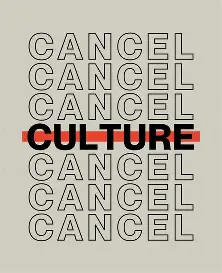Herein this article, we discussed cancel culture vs accountability: where is the line, what is cancel culture? what is cancel culture? so, where’s the line? when cancel culture becomes a problem, why accountability still matters, finding the balance.
In the age of social media, one viral tweet can take down a career. A resurfaced video can cost someone their job. A public mistake can lead to swift, widespread condemnation. This is the era of cancel culture — but is it justice, or a digital mob with no room for growth?
What Is Cancel Culture?
Cancel culture refers to the public call to boycott, shame, or “cancel” someone — often a celebrity, influencer, or public figure — for behavior or statements considered offensive, harmful, or problematic. It’s a modern form of social ostracism, fueled by hashtags and rapid-fire opinions.
Sometimes, it leads to real-world consequences: lost deals, roles, or reputation. In other cases, it simply sparks debate.
What Is Cancel Culture?
Accountability, in contrast, is about taking responsibility for one’s actions, learning from mistakes, and making amends. It’s not about punishment for the sake of punishment, but about growth, healing, and justice — especially when harm has been done.
True accountability involves: Acknowledging the harm caused, offering a sincere apology, making efforts to change and do better.
So, Where’s the Line?
The line between cancel culture and accountability can be blurry — and often, the difference lies in intent and outcome.
Cancel Culture often looks like:
. Instant judgment with little context
. No opportunity for dialogue or growth
. A focus on punishment, not reform
. Social media acting as judge, jury, and executioner
Accountability looks like:
. Acknowledging wrongdoing
. Offering space for understanding and change
. Centering the voices of those harmed
. Encouraging better behavior, not just shaming past behavior
When Cancel Culture Becomes a Problem
Cancel culture can silence important conversations by instilling fear rather than encouraging learning. It often fails to differentiate between ignorance and malice, between a bad moment and a bad person.
It also tends to ignore: The passage of time (Have they grown since then?), The passage of time (Have they grown since then?), The person’s response (Did they apologize and try to change?)
In short, it can create an environment where people are too afraid to speak — not out of respect, but out of fear of being destroyed.
Why Accountability Still Matters
On the flip side, dismissing cancel culture entirely can also be dangerous. Some use it as a shield to avoid consequences. “You’re just trying to cancel me” becomes a way to dodge hard conversations about racism, sexism, or abuse of power.
Accountability ensures that harm is acknowledged and not repeated. It promotes responsibility, growth, and justice — not shame for its own sake.
Finding the Balance
So, how do we strike the balance?
Pause before posting. Ask: Do I have the full picture? Am I seeking justice or just outrage?
Recognize intent, but don’t ignore impact. Both matters.
Give space for growth. People aren’t static. They can learn and improve.
Center the harmed, not just the headline. Their voices should lead the conversation.
Cancel culture and accountability aren’t the same — but they’ve become entangled in ways that make it hard to tell them apart. The challenge isn’t just to call out wrongs, but to call in for change. Let’s move from punishment to progress, and from shame to responsibility.
In the end, it’s not about who’s canceled. It’s about who’s learning — and how we can all do better.


